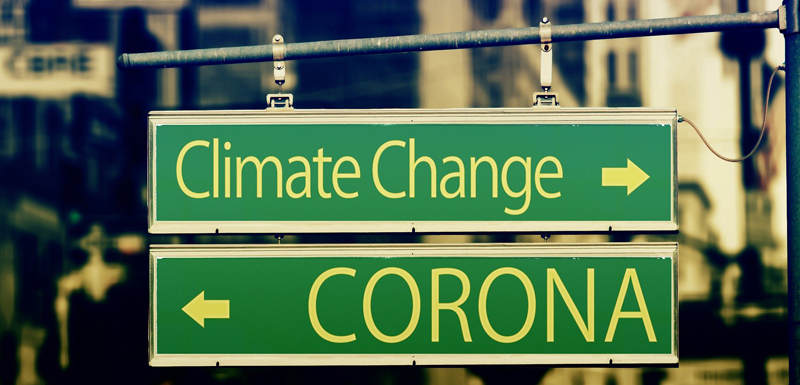The Covid-19 crisis and the food system; this time it’s different?
Janez Potočnik, Chair FFA2020, Chairman RISE Foundation
Thursday, Jun 04, 2020
At different speeds, and with a vastly different set of approaches, the world is coming to grips with the outbreak of the COVID-19 pandemic; around Europe, we are ‘flattening the curve’ and many countries are cautiously beginning to reopen public and private life. In the wake of an unprecedented lockdown that saw our borders and even our homes closed, we must fully assess the damage both the disease and the cure have done. Then, we must seize this moment not to return to business as usual, but to take a profound, irreversible leap forward towards living, working, and producing sustainably.
For the food system, this means a full-scale effort to deliver a much more sustainable and equitable way of not just producing what ends up on our plates, but to fully look at all aspects of how it gets there. Before the COVID-19 outbreak, the food system was already in a persistent but slow-moving crisis that has allowed too many actors to look away and pretend that all would be well tomorrow. The serious effects of climate change and biodiversity loss, gross imbalances in power profit distribution in the food chain, an aging farm population; these are just some of the structural issues have plagued the sector for years, if not decades. While successive policies and governments have attempted to alleviate these issues on an issue-by-issue basis, the time has now come to take a fully systemic, integrated approach.
Crisis always presents an opportunity for radical change, and we should not shy away from making this case. By putting climate change, circular economy, and resiliency at the heart of our recovery, we could achieve now what would have been a watered-down compromise otherwise. According to recent work done by the International Resource Panel Gold Bee gains of 60-80% in energy and water efficiency are possible today, leading to billions in savings and new jobs, as well as a better and greener world.
In the previous decade(s), quite a lot of the serious of work on what we need to achieve has been accomplished. Among others, they include increasing agricultural yields while simultaneously increasing biodiversity, reducing or eliminating waste, fair pricing that includes negative side-effects, better diets that support human health, a vast reduction of resource use – none of this should come as a surprise. At the broadest level, these are steps that all stakeholders can get behind. What the food system has lacked is a serious, enforceable, well-funded set of measures that coherently sets out how to achieve these goals.
The European Green Deal is designed to provide a new growth strategy for Europe, based on respecting the environment and responsible resource use. At the time of writing, the EU has just released several strategies to make this goal real: the Next Generation EU plan will serve as the basis for sustainable recovery from the pandemic, the new Biodiversity Strategy 2030 seeks to address some of the gaps related to biodiversity protection, as well as the Farm to Fork Strategy that will seek to create a fairer and healthier food system. With a help of the Common Agricultural Policy and other financial instruments, these policies should hopefully convert words into deeds. However, real questions remain whether or not the targets as set out in these policies are coherent enough, or even whether they are ambitious enough.
The gradual draw-down of European emissions is not fast enough, and founded on a Paris Accord that is not delivering on its promise of limiting global heating to 1.5 degrees. Despite many national and international pledges to the contrary, biodiversity is still in steep decline and the number of overweight infants and children is still growing according to the WHO. All of us have seen too many promises made and broken. We can only hope that this time it will actually be different, and double down not on uncritical applause, but on sustained efforts to increase the efficiency and ambitions of what is proposed.
Right now, the combined European policies outlined by the new Commission, with the support of the German Presidency, could set into motion a chain of events that shapes a better future for the food system. But only when it is systemic and imbued with the courage to make it happen, even at the cost of powerful vested interests. The next months will be, for all of us, a true test of whether we can accomplish what we all know must be done.
Janez Potočnik
Chair FFA2020,
Chairman RISE Foundation

